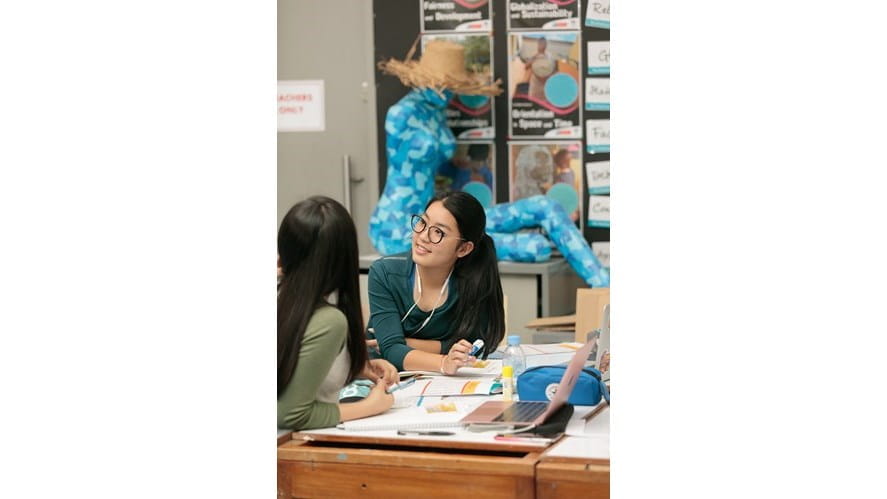We use cookies to improve your online experiences. To learn more and choose your cookies options, please refer to our cookie policy.
Admissions Open 2026-2027
Enjoy 25% off tuition fees for up to 5 years | Register Now

Every step on your child’s learning journey helps to shape their aspirations for what they might do in future. Each subject they explore, MIT professor or Juilliard performers they meet through Global Campus, expedition they go on to visit new cultures and communities - it all feeds into their ever expanding view of the world and their place in it.
We are often asked when the ‘right time’ is for conversations at-home or in school to be had around making decisions for the future. Rather than recommend a specific time in which these decisions need to be made, we suggest instead that all of our parents keep in mind two key milestones in the secondary school calendar and how decisions at each of these stages help to open up potential future pathways and opportunities.
Year 9, shaping their path to university
In year nine, our students encounter the first point in their school career in which they can elect to study particular subjects. At this stage we recommend for all students to keep their International General Certificate of Secondary Education (IGCSE) choices broad and varied. The aim in year 9 is not to place students under pressure to decide what they would like to study at university and therefore how they should shape their subject choices, but instead to focus on where their strengths and interests lie across a mix of different subject types. By choosing subjects your child enjoys and can excel in, it sets them up with a great foundation for the A-Level in year twelve and thirteen.
Year 11, identifying students interests leading to the university of their choice
Year eleven is when students make their most significant subject decisions as they look ahead to the IBDP which they will begin in year twelve. This decision process takes place in September and is also when students receive their most substantial university guidance from our school’s University Counsellor, Colleen Usher.
The A-Level is designed to equip students with a broad range of skills so that their potential future pathways are widened rather than narrowed through specialism at too early a stage. One method we use to help students approach this is to think about their education not as a specific destination, but as a journey. In practice this means that instead of encouraging a student to say that they would like to study at University College London, for example, we instead encourage them to think about what values and interests underpin their subject interests. Instead, they might identify that they are passionate about making a contribution to healthcare and securing an internationally recognised degree which helps them to do this around the world. We then help them to identify what skill sets and subjects they would need to pursue that direction and achieve their ultimate goal.
Many 15-16 year olds have a limited idea of what careers exist because they simply haven’t been exposed to them yet, so it is important that we help them to explore their options, particularly for those who may not have an idea yet of where their interests lie. We hold sessions to help students think about different career pathways and possibilities, understand university systems, and gain a better understanding of which careers different university courses can lead to. Our University Counsellor also provides an enormous amount of online resources, webinars, careers workshops and career showcases in which students can explore jobs through the experiences of people who work in the field.
Importantly, when choosing subjects we guide all of our year eleven’s to think about and understand the importance of gaining a transferable, interdisciplinary skill set. The world of work is forever changing and traditional pathways to a career which may exist now, may not exist in the future. It is our job to prepare them for this and to help them build a robust, competitive skill set which will prepare them for success in a diverse and changing jobs market.
Find out more
We hope we have helped you to better understand how we guide our students at BVIS towards a pathway which equips them for the world of work and pursuing their career ambitions.